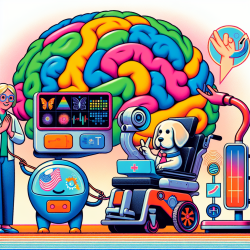Introduction
Special Education Directors are often faced with the daunting task of managing numerous Individualized Education Program (IEP) meetings, which can lead to burnout. The pressure to create effective, individualized plans for students while managing administrative duties can be overwhelming. However, leveraging data-driven strategies and online therapy services can streamline this process, reducing stress and enhancing outcomes for children.
The Challenges of IEP Planning
IEP meetings are critical for tailoring educational experiences to meet the unique needs of each student. However, these meetings can be time-consuming and complex, often requiring input from multiple stakeholders. The administrative burden and emotional labor involved can contribute significantly to professional burnout among Special Education Directors.
Data-Driven Decision Making
Utilizing data-driven decision-making in IEP planning can significantly alleviate these pressures. By analyzing data from previous IEPs, progress reports, and assessment tools, educators can make informed decisions that are tailored to each student's needs. This approach not only saves time but also ensures that the interventions and strategies are evidence-based and effective.
The Role of Telepractice in IEP Meetings
Incorporating telepractice and online therapy into the IEP process can further streamline operations. Telepractice allows for flexible scheduling, reducing the need for in-person meetings and allowing stakeholders to participate from remote locations. This flexibility can lead to more consistent participation from all team members, including parents and specialists, which is crucial for comprehensive IEP development.
Benefits of Online Therapy Services
- Accessibility: Online therapy provides access to a wider range of specialists who may not be available locally.
- Efficiency: Sessions can be scheduled at convenient times, reducing the need for travel and minimizing disruptions to the school day.
- Data Collection: Online platforms often include tools for tracking progress and collecting data, which can be used to inform IEP updates and modifications.
Conclusion
By integrating data-driven strategies and online therapy services, Special Education Directors can enhance the efficiency and effectiveness of IEP meetings. This approach not only reduces burnout by streamlining processes but also ensures that students receive the individualized support they need to succeed. Embracing these innovative solutions can lead to better outcomes for both educators and students.










